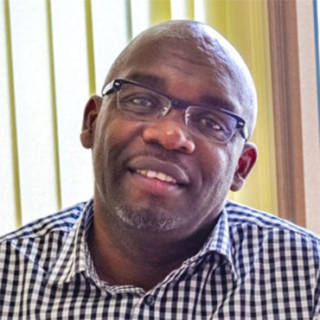 Daudi Sumba, head of Monitoring and Evaluation at the Alliance for a Green Revolution in Africa (AGRA), shares his views on how evaluation can support Africa's agricultural transformation.
Daudi Sumba, head of Monitoring and Evaluation at the Alliance for a Green Revolution in Africa (AGRA), shares his views on how evaluation can support Africa's agricultural transformation.
What is the role of evaluation to support sustainable agriculture and end hunger in Africa?
To end hunger and improve agriculture in Africa we need agricultural transformation. This means that the smallholder farmers who are today subsistence farmers have to improve their production to move from being subsistence farmers to small commercial farmers who produce enough and sell up to 50% of their produce to the market. In this way, farmers will generate income that they can reinvest in the farm or in other activities. As people move from agriculture into other sectors they free land that can be farmed intensively to provide the food that we need.
This pathway will create the economic ripple effect that causes transformation at the higher level.
To achieve agriculture transformation, we must be clear on what farmers need: improved technologies, seeds, fertilizers, and we must understand coping and resilience strategies, and issues of extension.
We need to understand the progress that is being made in transformation and to measure transformation as it happens and to see whether we are on track or not. Evaluation then comes in to provide the evidence in certain points in time, to inform resource allocation and programme implementation and to correct if need be. I see evaluation playing a much important role in Africa as we begin to track the key markers of transformation.
What are the main challenges in promoting agriculture transformation?
The main challenge is that we do not have national monitoring and evaluation systems to capture this transformation. Even where these systems exist, capacities and skills are low and resources needed to do the work at national scale are very limited. Therefore, we end up having data in patches from different players that we try to piece together to tell the story of transformation in a particular country.
We need to consolidate all the data information and the M&E systems into a coherent system that speaks to one another from different levels so that it can tell the story of transformation at the national level.
How can African countries move forward in transforming agriculture?
In AGRA we have a programme called the Stet Capability and policy programme which is built on the premise that it is the mandate of government to transform agriculture. Governments know what to do yet they lack the capacities to implement and in some cases there is no leadership to coordinate the different actors that can contribute to transformation.
This programme aims at unpacking these issues and help to build capacities in implementation so that we can achieve what we are looking for. One of the components of this programme is to develop capacities for monitoring and evaluation to provide evidence for planning, for decision-making and resource allocation in countries.
Countries are now talking about developing sector strategies and visions and national agriculture investment plans. We believe that the design of these visions can benefit from good evaluation data that tell the story of where we are and where we need to be and the evidence in between.
We are also focusing on the mutual accountability side: there are mutual accountability processes that have been put in place in countries within the Comprehensive African Development Programme (CADP). Accountability processes require good quality data that evaluation has a critical role to play in providing so that we can know what is going on and bring countries to account.
What is the role of knowledge sharing and Communities of Practice in this context?
It is absolutely important to have a CoP to help diffuse the lessons and knowledge from different parts of Africa. There are countries that are ahead of others and need to have a CoP to bring people together and help diffuse lessons and knowledge from different areas of Africa. CADP has a platform for learning and a CoP in this sector on the use of evidence and knowledge would really add value to the work that is going on in Africa.
Interview taken at the AfrEA 9th International Conference.
